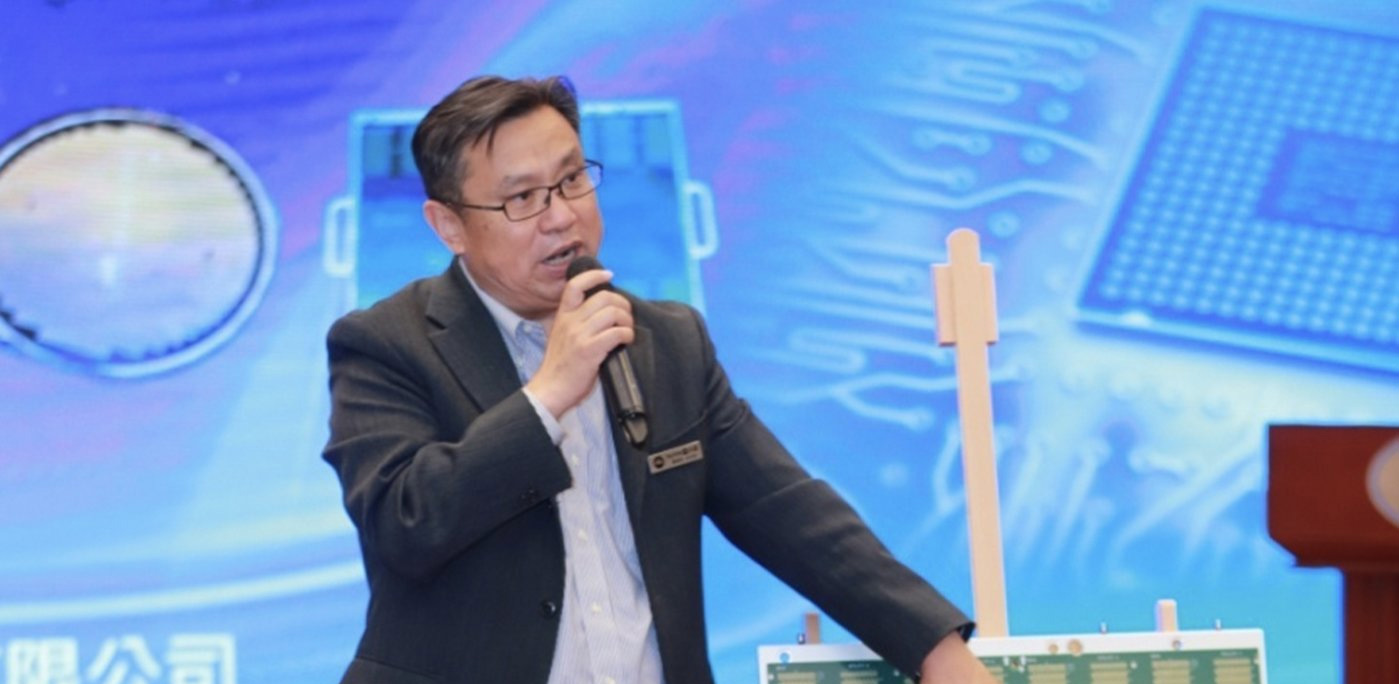According to news on May 6, Shanghai TwinSolution Electronic Technology Co., Ltd. (hereinafter referred to as "TwinSolution Technology"), a professional semiconductor testing solution provider, has recently completed a 160 million yuan B round of financing. Investors include Shangqi Capital, a subsidiary of SAIC, and Jun Xin Capital, Nanjing Jucheng, Fudan Venture Capital.
Yin Lanyong, founder and CEO of TwinSolution Technology, said that this round of financing will mainly be used for semiconductor 2D/3D Research and development, operation management and improvement of sales system for MEMS probe cards and LTCC ceramic test substrates. TwinSolution Technology is currently undergoing a Pre-IPO round of financing. The company's annual sales are close to RMB 200 million and it is preparing for an IPO (initial public offering).
It is reported that TwinSolution Technology TwinSolution was founded in 2007 and is headquartered in Zhangjiang, Shanghai. It is one of the earliest providers of professional test interface products and solutions in the domestic semiconductor field. It is also the most technologically advanced and largest company in the domestic test socket field. Mainly focused on IC (integrated circuit) testing and other fields, its products include ATE test sockets, MEMS (microelectromechanical systems) chip probes, etc. Its customers include the world's leading mobile phone chip, memory chip and AI chip manufacturers, Gallium Nitride (GaN) and silicon carbide (SiC) wafer manufacturers, etc., with more than 600 customers worldwide.
Yin Lanyong holds an EMBA degree from the Ivey Business School in Canada. After returning to China in 2002, he served as the sales manager of Electroglas, a wafer detector company, in China and the general manager of K&S Semiconductor Test Products Division in China. Moreover, Yin Lanyong is also a serial entrepreneur. One of his companies was merged and acquired. To the world's largest semiconductor testing company, FormFactor (NASDAQ: FORM). In 2014, Yin Lanyong joined TwinSolution Technology, and subsequently expanded global business to establish TwinSolution USA (TWINUSA), and invested in GeminiTech, a Korean company controlled by TwinSolution.
Up to now, TwinSolution Technology has more than 300 employees. It has two factories in Suzhou that are engaged in the design and manufacturing of test probes, various test socket aging sockets, MEMS probes and probe cards; in Tianjin and South Korea Seoul has two design and R&D centers respectively; Silicon Valley in the United States and Hong Kong, China, serve as TwinSolution's global sales centers; Beijing, Chengdu, Shenzhen and other regions have global sales and technical support offices.
From an industry perspective, the semiconductor test interface (Test Interconnect) includes wafer test probe cards and test sockets The total market size, including aging sockets and test load boards, will be US$8 billion globally in 2021, but it can drive the US$550 billion global chip industry and is a crucial link. Whether it is chip design verification, wafer manufacturing CP, or packaging finished product FT, testing processes are required.
The MEMS probe card designed and manufactured by TwinSolution Technology is considered the "fingertip" of the test equipment and a key tool in the chip testing process. It is fixed on the probe machine with the wafer, and the die on the wafer Contact the probes one by one and test them one by one. Probe card products for different types of chips such as storage, MEMS, SoC, and simulation have different technologies and applications. In the field of MEMS micro-nano technology, specialized MEMS probes can effectively solve the problem of low precision and low output of traditional spring probes. , short life and other problems, and has a high technical threshold. The global market size of MEMS probes is approximately US$3 billion.
Public data shows that China currently accounts for 13% of the global probe card consumer market of US$2.7 billion. Among them, FormFactor of the United States alone accounts for 30-40% of the global probe card market. FormFactor's revenue in 2022 is 7.48% billion, a year-on-year decrease of 2.8%. At present, the global share of domestic probes is only 1.1%, and the international market space for domestic probes is huge.
On April 26 this year, Jingsheng Micro-Nano Semiconductor, a subsidiary of TwinSolution Technology, launched the N90 MEMS Cobra probe in Beijing, covering multiple advanced process nodes, which can shorten the process flow, improve manufacturing accuracy, and reduce test costs. It is mainly used for In domestic AI Chips (GPU/FGPA/DPU) and advanced process computing chips.
"N90 is completely independently developed, designed, and manufactured by us, and then introduced to the market." Yin Lanyong said that Jingsheng Micronano will continue to invest in the research and development of 2.5D storage test probes and 3D MEMS probes.

TwinSolution科技董事长殷岚勇
Yin Lanyong mentioned that the company's probe card sales business is less affected by the downward factors of the chip industry, mainly because its products are targeted at the advanced manufacturing (high-end) probe card market with higher profits. With the widespread application of large AI models such as ChatGPT, the global demand for chip computing power has increased significantly, and the demand for chip testing has also increased.
He described himself as a "shovel seller" in the semiconductor industry.
In Yin Lanyong’s view, the semiconductor industry is still at a trough, and there may be major directional changes in Q3 and Q4 this year. Among the specific tracks, automotive electronics is increasing, while consumer electronics is still sluggish, and it takes time to adjust inventory. He pointed out that generally speaking, the industry will need one to one and a half years to adjust from 2022 to the present. "It should be the last moment near dawn."
The localization rate was not high in the past few years, mainly due to the small size of the domestic semiconductor market. However, Yin Lanyong believes that in the past two years, with the changes in the industrial investment environment, chip localization has developed rapidly. In particular, the decoupling of the United States and China has made the industry realize the importance of semiconductor localization and promoted the development of TwinSolution business. But on the other hand, the semiconductor industry is a global industry, and chip decoupling will have a greater impact on the supply of raw materials. Therefore, TwinSolution will use this round of financing to develop and produce ceramic test substrates to solve product supply problems and greatly reduce procurement costs.
He mentioned that it is impossible for China to break away from the global system of the semiconductor industry chain, but in the long term, technological innovation still requires China to develop its own core technology products.
"Localization cannot be solved in a few days, months or one sentence. It requires a process, some may be faster and some may be slower. The localization of chips is only a matter of time. Just like steel, China There used to be no steel, but now there are Chinese companies all over the world. I think at least 90% of the final products can be localized, and the last 10% is also the most difficult and will take time to overcome," said Yin Lanyong.
Yin Lanyong emphasized that the domestic semiconductor system is transforming from globalization to "internal circulation", which requires time, technological adjustments and breakthroughs, and poses great challenges. But he believes that there is no need for everyone to remain pessimistic about the development of domestic chips. The current moment is an important time for layout before the next wave of chip boom. The localization of chips is the only way for the long-term development of the industry.













